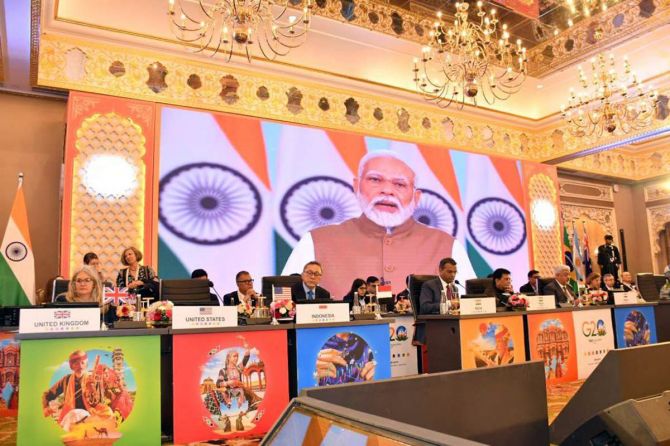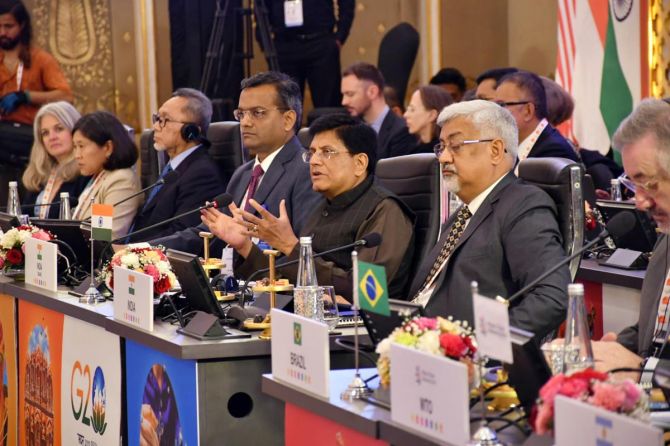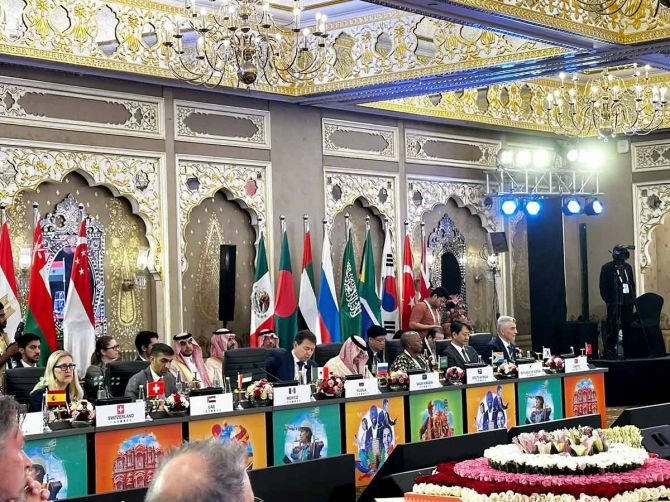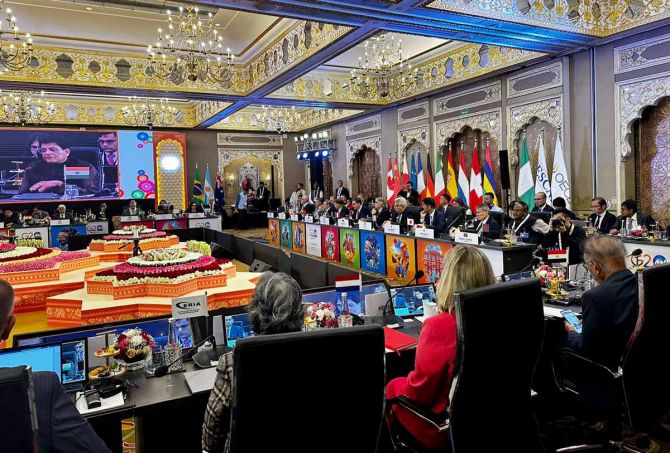Prime Minister Narendra Modi on Thursday suggested the G20 trade ministers to work collectively to ensure equitable competition between large and small sellers as there are challenges in the fast growing cross-border e-commerce.

In a video message at the G20 Trade and Investment Minister's meeting here, he also emphasised on the need to address the problems faced by consumers in fair price discovery and grievance handling mechanisms.
"Digitising processes and use of e-commerce have the potential to enhance market access.
"I am glad that your group is working on the 'High Level Principles for the Digitalization of Trade Documents'. These principles can help countries in implementing cross-border electronic trade measures, and reduce compliance burdens.
"As cross-border e-commerce continues to grow, there are challenges as well. We need to work collectively to ensure equitable competition between large and small sellers," he said.

Trade ministers of G20 grouping have gathered to discuss ways to promote international commerce and investments.
Terming the government initiative Open Network for Digital Commerce (ONDC) as a game-changer, he said it will democratise the digital marketplace eco-system.
Digitising processes and the use of e-commerce have the potential to enhance market access, the prime minister added.
Modi also said that India is seen as a combination of openness, opportunities and options as the world sees optimism and confidence in the Indian economy.
During the last nine years, India has become the fifth largest global economy and it has increased its competitiveness and enhanced transparency, he said.

"Today we see global optimism and confidence in the Indian economy.
"India is seen as a combination of openness, opportunities and options," he said.
India has expanded digitisation and promoted innovation and it has moved away from red tape to red carpet and liberalised FDI flows, he said.
"Above all we have brought policy stability," he said, adding, "we are committed to make India the third largest global economy in the next few years."
He further said that the global uncertainties have tested the world economy and as members of the G20, it is the responsibility of the countries to rebuild confidence in international trade and investments.
"We must build resilient and inclusive global value chains that can withstand future shocks.
"In this context, India's proposal to create a generic framework for mapping global value chains is important," Modi said.
He added that this framework aims to assess vulnerabilities, minimise risks and enhance resilience.

Further, he added that there is a need to put special focus on MSMEs as they account for 60 to 70 per cent of employment and contribute 50 per cent to the global GDP.
"They need our continued support... For us MSME means maximum support to micro, small and medium enterprises," he said.
Further, he said that the proposed "Jaipur Initiative to foster seamless flow of information to MSMEs" will address the challenge of inadequate access to market and business related information faced by the sector.
"I am confident that you will work collectively to ensure that the global trading system gradually transitions into a more representative and inclusive future," he added.










